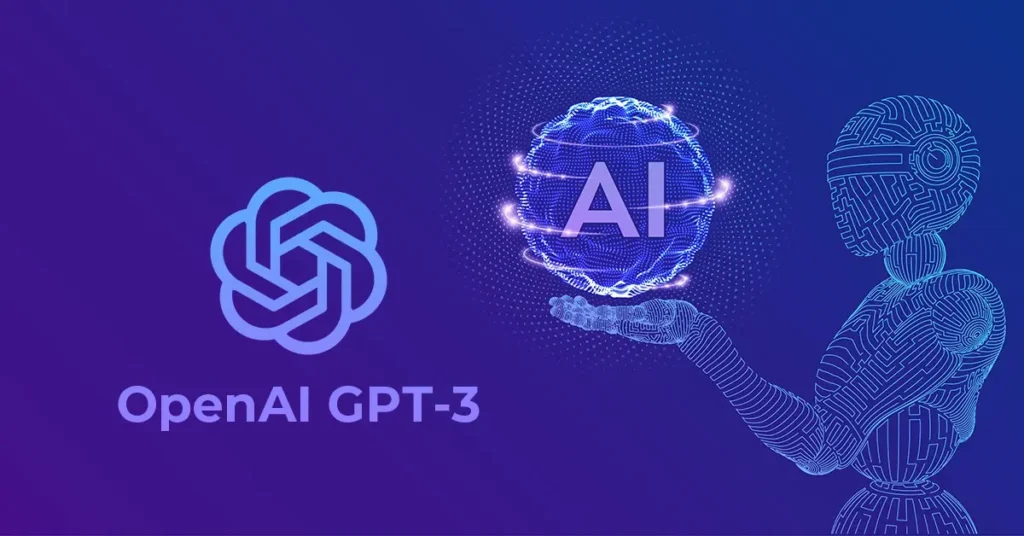How to Make Money with AI?
How to Make Money with AI? Businesses and Individuals may make money using artificial intelligence (AI) in a variety of ways, including producing and selling AI goods or services, utilizing AI to enhance corporate operations, investing in AI startups, offering AI consulting services, and generating AI content. Businesses should remain up to speed on the newest advancements in the area and address the obstacles and issues that come with employing AI, such as data privacy, bias, and the possibility of job displacement, to maximize the potential advantages of AI.
Introduction
Artificial intelligence (AI) is fast changing the way we do business, and for those who want to capitalize on its potential, there are several ways to generate money using AI. AI can help organizations earn money in a variety of industries by increasing efficiency and lowering costs, as well as inventing new goods and services.
In this blog article, we’ll look at the various ways organizations may use AI to earn money, as well as some of the problems and factors to consider. We’ll also provide some practical advice for people and organizations looking to get started with AI and make money.

Waves of ML/AI are already affecting areas such as information technology (IT), finance (FinTech), healthcare (HealthTech), education (EdTech), and others. Companies are more focused on the usefulness of AI, going past the testing phase and focusing on rapidly growing their use of AI.
This blog article will give great insights and concrete recommendations on how to generate money using AI, whether you’re a business owner, entrepreneur, or simply interested in learning more about the possibilities of AI. So let’s get started!
Understanding AI
How it Works?
- The development of computer systems capable of doing activities that ordinarily require human intellect, such as learning, problem-solving, and decision-making, is referred to as artificial intelligence, or AI.
- There are two kinds of AI: narrow or weak AI, which is meant to accomplish a specific task, and general or strong AI, which is designed to perform any intellectual work that a person can. Depending on how it is trained, AI may also be characterized as supervised, unsupervised, or reinforcement learning.

- AI systems discover patterns and make judgments by processing and analyzing vast volumes of data using algorithms and machine learning techniques. A self-driving car, for example, utilizes AI to evaluate data from its sensors and decide whether to turn, halt, or accelerate.
- Businesses may use AI to automate specific operations, enhance decision-making, and get insights from data that people would find difficult or impossible to handle manually. This can assist organizations in increasing efficiency, lowering expenses, and increasing income.
In the next part, we’ll look at some of the numerous ways businesses might profit from AI.
AI Types
There are several forms of artificial intelligence (AI), each with its own distinct traits and possible uses. Understanding the various forms of AI can assist firms in identifying chances to profit from AI.
Narrow or weak AI is one sort of AI that is meant to execute a single purpose. Many practical uses of this form of AI include voice assistants, self-driving automobiles, and picture recognition software.
General or strong AI is another sort of AI that is supposed to accomplish any intellectual work that a person can do. While this sort of AI is still in its infancy, it has the potential to change numerous sectors and open up new economic opportunities.
Depending on how it is trained, AI may also be characterized as supervised, unsupervised, or reinforcement learning. Supervised learning entails training an AI system with labeled data, such as photos labeled “cat” or “dog.” Unsupervised learning is the process of training an AI system with unlabeled data so that it may uncover patterns on its own. Reinforcement learning is teaching an artificial intelligence system by trial and error, rewarding it for some behaviors and penalizing it for others.

In the corporate sector, AI has the potential to be employed in a wide range of applications, from work automation and efficiency improvement to the development of new goods and services. In the next part, we’ll look at some specific businesses and areas where artificial intelligence is presently being employed or has the potential to be used in the future.
Opportunities for How to Make Money with AI?
Industries and Sectors using AI
- Healthcare: Artificial intelligence has the potential to transform the healthcare business by enhancing diagnosis and treatment, lowering costs, and boosting efficiency. AI-powered systems, for example, may scan medical pictures to spot symptoms of illnesses such as cancer and assist clinicians in making more accurate diagnoses. AI may also be used to analyze electronic health information in order to uncover trends and patterns that might aid in the improvement of patient care.
- Banking: AI is already being utilized to improve risk assessment, fraud detection, and customer service in the finance business. Banks and credit card businesses, for example, may use AI to analyze consumer data and find trends that could signal fraud or credit risk. AI may also be used to automate some jobs, such as financial statement analysis, saving time and money.
- E-commerce: Artificial intelligence has the potential to revolutionize the e-commerce business by enhancing consumer experiences and raising revenues. AI-powered chatbots, for example, may provide tailored suggestions to customers based on previous purchases, and AI can be used to optimize product listings and pricing.
- Manufacturing: By automating jobs and improving production processes, AI has the potential to enhance productivity and lower costs in the manufacturing business. For example, AI may be used to discover inefficiencies in the manufacturing process and recommend improvements, as well as to monitor and optimize the functioning of factory equipment.
- Retail: AI may be used to improve customer service, streamline inventory management, and boost marketing efforts in the retail business. AI-powered chatbots, for example, may respond to consumer inquiries and provide product suggestions, and AI can be used to analyze customer data and enhance marketing efforts.
These are just a few instances of how artificial intelligence is being utilized or has the potential to be employed in many businesses and areas. The next section will go through specific methods that firms in various areas might use AI to create income.
Potential Improvements
- Healthcare: AI may be used to increase productivity and save costs in the healthcare business by automating operations such as appointment scheduling, insurance claim processing, and medical record analysis. A healthcare provider, for example, may employ an AI-powered system to analyze electronic health data and uncover trends and patterns that can aid enhance patient care, possibly resulting in cost savings and greater income.
- For further information on this title read our article.
- Banking: AI may be applied in the finance business to improve risk assessment, fraud detection, and customer service, resulting in cost savings and higher income. A bank, for example, may employ AI to analyze client data and find trends that may signal fraud or credit risk, hence lowering the cost of fraud protection measures. AI may also be used to automate some jobs, such as financial statement analysis, saving time and money.
- E-commerce: Artificial intelligence (AI) may be utilized to improve customer experience and increase sales in the e-commerce business. An e-commerce business, for example, may deploy an AI-powered chatbot to deliver tailored suggestions to clients based on their previous purchases, resulting in greater sales. AI may also be used to optimize product listings and pricing, perhaps leading to increased efficiency and revenues.
- Manufacturing: By automating jobs and improving production processes, AI may be utilized to boost productivity and lower costs in the manufacturing business. For example, an AI-powered system may be used to discover inefficiencies in the manufacturing process and recommend modifications, potentially resulting in cost savings and increased revenues. AI may also be used to monitor and optimize the functioning of production equipment, potentially resulting in higher efficiency and cheaper maintenance costs.
- Retail: AI may be applied in the retail business to enhance customer service, optimize inventory management, and boost marketing efforts, resulting in improved revenue. A store, for example, may utilize an AI-powered chatbot to answer client inquiries and propose products, resulting in greater sales. Artificial intelligence (AI) may also be used to evaluate client data and optimize marketing strategies, resulting in more focused and successful marketing efforts.
These are just a few instances of how firms in many sectors might use artificial intelligence to produce cash. AI may be used to generate new products or services, such as producing tailored products or delivering new services based on data analysis, in addition to boosting efficiency and lowering costs.

How do you get started on How to Make Money with AI?
Tips
- Learn the fundamentals of AI: Before getting into utilizing AI to create money, it’s critical to grasp the fundamentals of how AI works and the many forms of AI. This can assist you in identifying prospective possibilities and making educated decisions about how to use AI in your organization.
- Identify possible possibilities in your sector: Look for ways that artificial intelligence (AI) might be utilized to increase productivity, cut costs, or generate new goods or services in your company. This might entail examining your present business processes and finding areas where artificial intelligence (AI) could be utilized to automate operations or enhance decision-making.
- Investigate AI solutions and suppliers: Once you’ve found possible possibilities for applying AI in your organization, investigate various AI solutions and vendors who can assist you in implementing AI. Consider aspects such as pricing, scalability, and the vendor’s degree of support and training.
- Experiment and test: Once you’ve decided on an AI solution, start small and try out AI in other aspects of your organization. This will allow you to assess the effectiveness of the AI solution and make any required improvements before scaling it up.
- Continue to learn: Because AI is a quickly growing area, it’s critical to keep current on the newest breakthroughs and best practices. Attending professional events, taking online courses, or reading industry magazines might all be part of this.
You may set yourself up for success in utilizing AI to create money in your business by following these guidelines.
Resources available
- Online courses: There are several online courses available to assist you to learn about AI and how to apply it to your business. Coursera, edX, and Udacity are other popular possibilities. These courses frequently address subjects like machine learning, data analysis, and AI applications in many sectors.
- Industry events: such as conferences and seminars, may be a wonderful opportunity to learn about the newest advances in AI while also networking with other experts in the area. The International Conference on Machine Learning and Data Mining, the Conference on Neural Information Processing Systems, and the Conference on Computer Vision and Pattern Recognition are three popular AI industry events.
- Consulting firms: If you want more tailored advice on how to use AI in your organization, you may consider working with an AI-focused consulting firm. These companies may assist you in assessing your company’s needs and developing a strategy for leveraging AI to create money.
- Industry publications: Reading industry magazines may be a wonderful way to stay up to speed on the newest advances in AI and learn about best practices. Popular AI-related industry magazines include the Harvard Business Review, the MIT Technology Review, and the Journal of Machine Learning Research.
You may learn more about AI and find new ways to apply it in your organization by examining these websites.

5 Ways to Make Money with Artificial Intelligence
There are several methods to profit from artificial intelligence (AI):
- Create and sell artificial intelligence (AI) products or services: This might involve developing and marketing AI software, apps, or hardware.
- Use AI to improve company operations: AI is being used by many firms to automate processes, increase efficiency, and make smarter judgments. You may assist businesses in implementing and utilizing AI in their operations to boost productivity and profitability.
- Invest in AI firms: As artificial intelligence (AI) becomes more common, companies that create and employ AI technology are expected to expand. You may invest in these firms through the stock market or by acquiring stock directly from the company.
- Provide AI consulting services: If you have knowledge of AI, you may offer to advise organizations to assist them to understand how to utilize AI to enhance their operations or develop new products or services.
- Create AI content: There is an increasing need for instructional content on artificial intelligence and related issues. You may teach others about AI and how to apply it by creating and selling online courses, writing books, or making videos.
Overall, the potential for profit from AI is enormous, and it is expected to expand as the technology becomes more widely available.
Challenges and considerations
- Data privacy: Companies that use AI must address the privacy concerns of gathering and analyzing massive volumes of data. This involves ensuring that data is acquired and utilized responsibly, safeguarding it against unauthorized access or abuse, and adhering to applicable laws and regulations.
- Businesses should have strong data collecting and management policies in place to safeguard data privacy. This might involve putting in place measures like encryption, password protection, and data backup. Businesses should also ensure that they have secured adequate consent from individuals before collecting their data and that the data is being used in accordance with their consent.
- Bias: AI systems can provide biased findings if the data on which they are taught is prejudiced. For example, an AI system trained on data from a certain group or demography may provide biased findings when applied to data from different groups or demographics. Businesses must guarantee that the data used to train AI systems is varied and representative in order to minimize bias.
- Businesses should guarantee that the data used to train AI systems is varied and representative in order to minimize bias in AI systems. Cleaning and preparing the data to remove any biases, as well as employing approaches such as stratified sampling to guarantee that the data is representative of the population, might be included.
- Employment displacement: Because certain jobs are automated, the usage of AI can occasionally result in job displacement. Businesses must examine the possible influence of AI on their workforce and devise methods to mitigate any negative consequences, such as staff retraining or upskilling.
- Businesses should explore initiatives such as retraining or upskilling employees, giving assistance to employees moving to new positions, and creating programs to encourage employee learning and development to reduce the possible impact of AI on the workforce.
- Explainability: Some AI systems, particularly those that employ complicated algorithms, may be difficult for humans to comprehend. This might make it challenging for organizations to comprehend how the AI system makes judgments, as well as to identify and remedy any possible issues.
- Businesses may utilize techniques like feature selection and dimensionality reduction to make data more intelligible to people in order to guarantee that AI systems are explainable. They can also use interpretable machine learning methods, which are intended to be more explainable.
- Regulation: Because AI is still in its early stages, there may be little regulation in some domains. Businesses will need to remain current on key rules and regulations and verify that they are in compliance.
- Businesses should remain up to speed on advancements in the field of AI and get legal counsel as needed to maintain compliance with relevant laws and regulations.
Businesses may assist guarantee that they are employing AI in an ethical and responsible manner while also realizing the potential advantages by taking these issues and factors into account.
Conclusion
We highlighted five possibilities for businesses on How to Make Money with AI? in this blog post: producing and selling AI goods or services, utilizing AI to enhance corporate operations, investing in AI enterprises, offering AI consulting services, and creating AI content. We also discussed some of the obstacles and factors that organizations would need to consider when utilizing AI, such as data privacy, bias, and the possibility of job displacement, and provided best practices for managing these issues and maximizing the potential advantages of AI.
As artificial intelligence (AI) continues to expand and become more widespread in numerous industries, it gives tremendous potential for businesses to innovate and enhance their operations. We urge readers to continue learning about and experimenting with the possibilities of AI in their own organizations, as well as to remain current on the newest advances and best practices in the industry.







